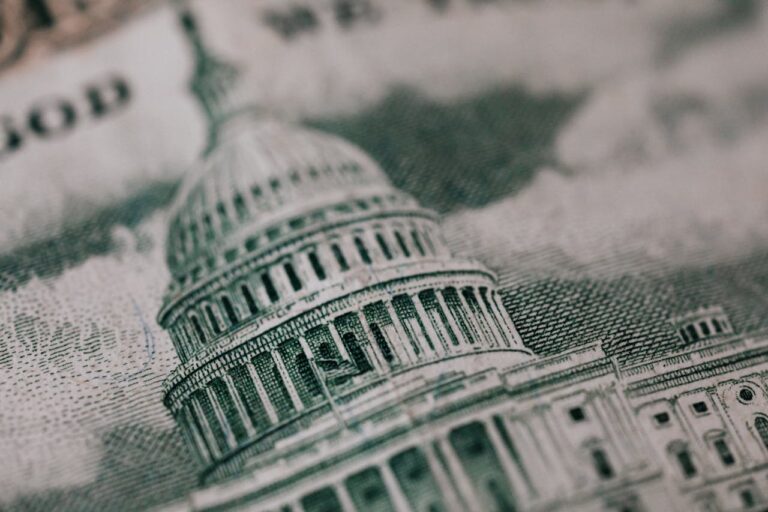Politicians who violate existing law on insider trading are often difficult to convict in court, but public confidence in Congress is at stake, according to a former chief White House ethics lawyer and a former deputy editor of Business Insider.
President Donald Trump’s sudden and occasionally contradictory moves on tariffs in April — and his statement on social media to buy shares, shortly before announcing a partial tariff roll-back — have led members of Congress to propose further legislation banning congressional stock trading altogether.
Sen. Jon Ossof of Georgia introduced the Ban Congressional Stock Trading Act in May — co-sponsored by other Democratic lawmakers like Sen. Mark Kelly of Arizona — soon after these tariff decisions.
House Speaker Mike Johnson voiced support for such a bill in May at a news conference, according to Politico.
“I’m in favor of that, because I don’t think we should have any appearance of impropriety here,” Johnson said.
In the House, Republican lawmakers such as Rep. Tim Burchett also introduced a bill in March, called the “End Congressional Stock Trading Act.”
Existing legislation on congressional stock trading, namely the 2012 Stop Trading On Congressional Knowledge (STOCK) Act, was meant to monitor stock trading by politicians who make financial decisions based on congressional knowledge. This includes conversations with financial institutions in congressional hearings or insider information only available to congressional members.
However, since 2012, actually convicting a member of violating the STOCK Act has been incredibly difficult to prove, according to business journalist Dave Levinthal, who investigates and reports on politicians who appear to violate the act.
“In terms of connecting both of those ends together in a way where it would provide you enough evidence to form a successful criminal prosecution, that’s insanely difficult, and it’s one of the reasons why we’ve never had a successful STOCK Act criminal prosecution,” Levinthal said.
An article published in the American Criminal Law Review details how the STOCK Act doesn’t fully accomplish what it sets out to do, and it realistically couldn’t because of limitations from congressional procedure.
“Successfully proving a violation of the STOCK Act requires prosecutors to demonstrate that the nonpublic information acted upon was derived from the member’s position, much of which can be shielded from investigators by the Constitution’s Speech or Debate Clause,” the article reads. “Additionally, prosecution of insider trading by members of Congress risks the disclosure of classified information.”
Richard Painter, a professor at the University of Minnesota and the former chief White House ethics lawyer in the George W. Bush administration, said there are too many components to account for when convicting a politician successfully.
“Almost never is anyone dumb enough on either side of the transaction to say something that makes them prosecuted for bribery, and prosecuting insider trading on the information could be just as hard,” Painter said.
He relates congressional stock trading to the Trump administration after potential leaks of insider information that Democratic lawmakers hoped to investigate in April.
“Leaks of information from government to political supporters and others could give rise to trading that might be extremely difficult to prosecute,” Painter said. “This is a long-standing concern, but there’s not a concern that we have had to worry about with respect to any particular president other than what’s happened very recently with President Trump.”
In April, President Donald Trump posted in all caps on Truth Social: “THIS IS A GREAT TIME TO BUY!!!” Soon after, he announced he would pause tariffs in most of the countries hit the hardest by his actions, leading to a sharp rise in the stock market.
Several Democratic lawmakers subsequently called for investigations into whether insider trading was happening due to the perceived manipulation of the stock market after the announcement of tariff pauses.
“The stock market freaks out about tariffs now,” Painter said. “That creates opportunities for anybody who knows what’s going to happen on tariffs to do some trading there, and that’s the problem.”
How to report on congressional stock trading
Levinthal has covered congressional stock trading as the deputy editor at Business Insider and editor-in-chief of RAW Story. At Business Insider, Levinthal worked on the series “Conflicted Congress,” an investigation into the personal finances of Congress members, where he used several databases to track politicians and their market activity.
“There’s also a lot of shoe leather reporting that you must marry with the digging through reams of documents every day,” Levinthal said.
At RAW Story, he said the publisher reported a story that was similar to “Conflicted Congress,” titled, “Lawmakers, law breakers: 37 members of Congress have violated a conflict-of-interest law.” The reporting clearly demonstrated conflicts of interest affecting congressional members of both parties. But Levinthal also said that people across the political spectrum think this should change.
“This is something that seems to unite everyone,” Levinthal said. “When you talk to Democrats, Republicans and independents, the vast majority of people of all sorts think that this is dirty, and many don’t even believe you when you say, ‘Well, yeah, it’s perfectly legal for a member of Congress to buy and sell all the stock that they want to and do this.’”
While Levinthal said it is difficult to prosecute someone for violating the STOCK Act, he said that shouldn’t discourage reporters from digging into the trading activities of politicians.
He said that politicians “should be held to a higher standard” and trading stock while in office is in “theoretical conflict with their public service” — and his reports have affected the public reputation of those legislative figures, even if they were never successfully convicted in court.
Listen to the accompanying podcast episode here.









